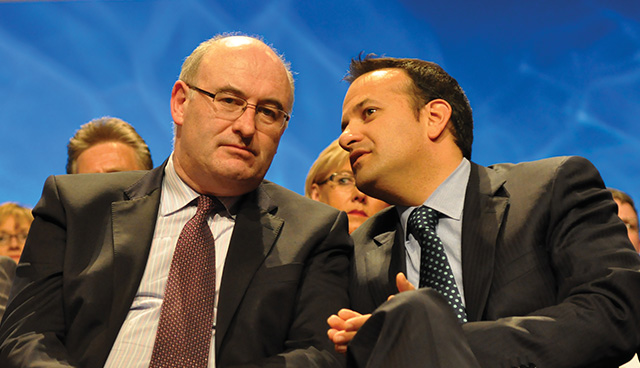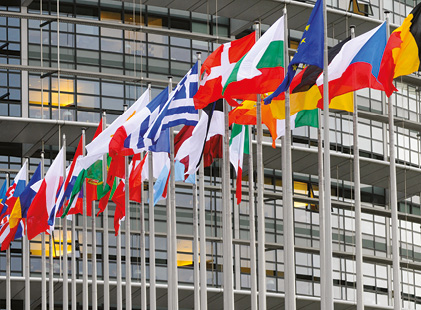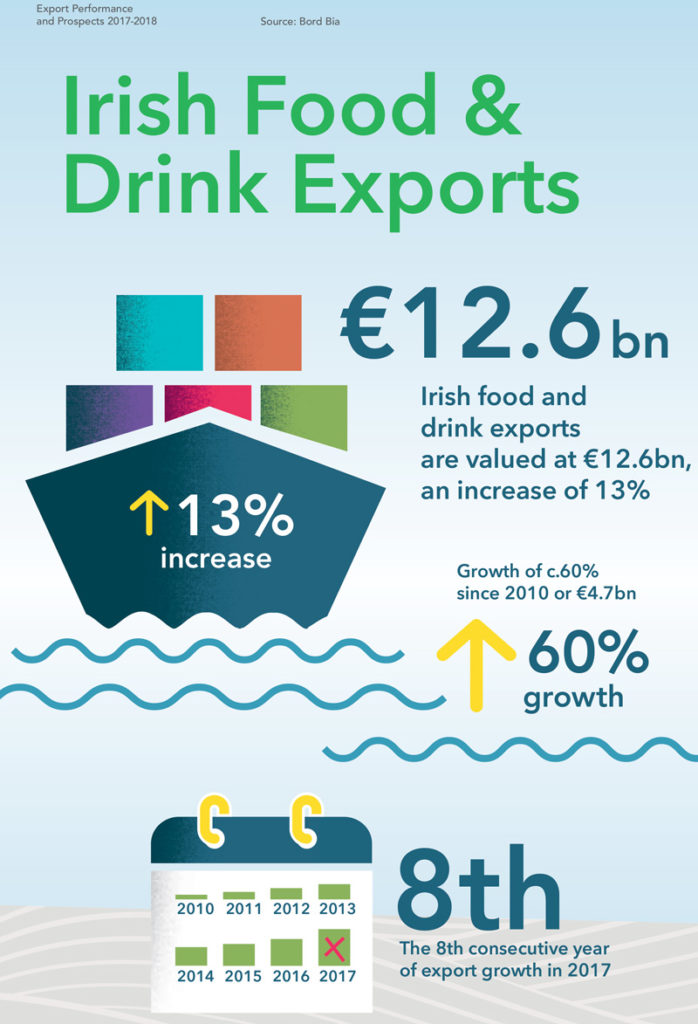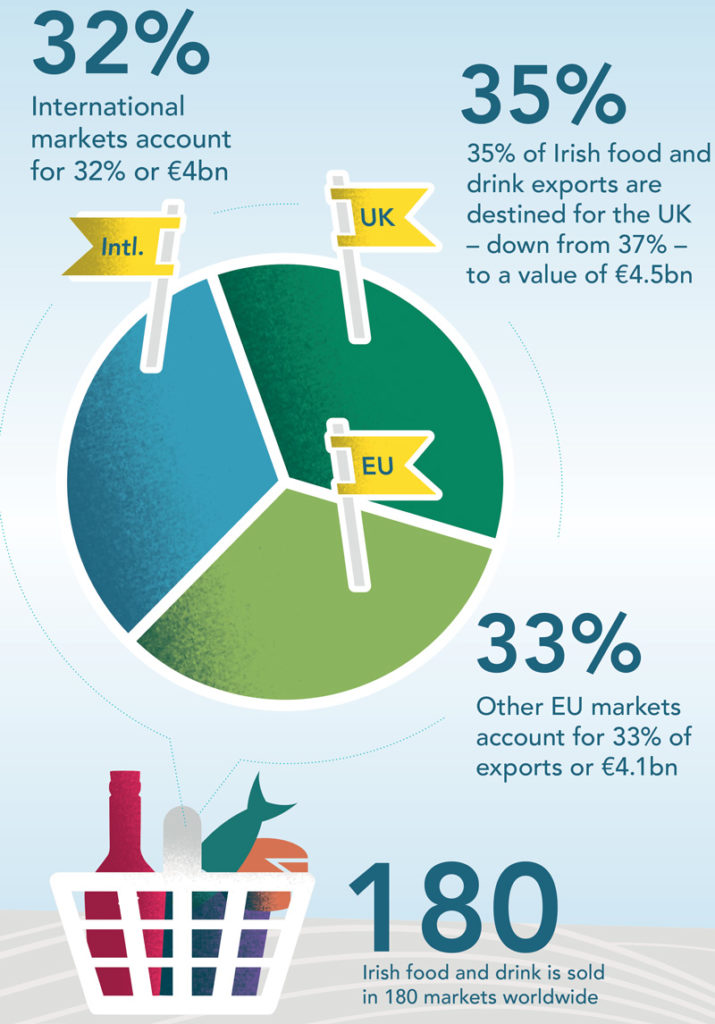Making a mark in Europe


Three years into the job and it looks like Phil Hogan is, at last, making a real impression in his role as EU Commissioner for Agriculture and Rural Development, writes Richard Halleron.
The last number of weeks has seen the publication of Hogan’s Common Agricultural Policy (CAP) White Paper and Omnibus Measures. It will take time to gauge if the proposals contained within both documents make a real and positive difference for farmers on the ground.
Admittedly, he is constrained by the ever-growing pressure on EU budgets. This challenge will not be helped by Brexit and the loss of the UK’s annual contribution to Brussels’ coffers.
If Hogan wants to create a legacy for himself within Europe, then he must come up with some radical thinking that constitutes a step change in the way the CAP is implemented. In doing so, he has to give farmers genuine hope for the future.
In the case of the Austrian politician Franz Fischler, his big idea as Agriculture Commissioner back 15 years ago was to decouple agricultural output from the EU support systems. However, this was not blue-sky thinking. The World Trade Organisation (WTO) was breathing down the EU’s neck at the time, threatening cataclysmic sanctions if support was not disentangled from farm output.
However, the residual impact of the Fischler reform package is with us today in the shape of the Basic Payment Scheme (BPS).
We already know that Hogan is committed to keeping the fundamental tenet of the BPS in place. So where does this leave him, as he seeks to carve-out a name for himself within the fabric of the EU story?
His only option, in my opinion, is to push for the development of an EU farming and food chain, which is wholly transparent. Currently, the retailers hold all the cards. They seem to have total control over the prices they pay primary producers, without having to come clean on the mark-up they enjoy when it comes to selling the vast array of food that reaches their shelves on a daily basis.
In contrast, the production costs incurred by farmers are made fully known courtesy of the figures produced by Teagasc, in tandem with the Department of Agriculture, Food and the Marine. Undoubtedly, this commitment is replicated in all other EU member states.
This farmer/processer imbalance must be rectified and it’s up to Hogan to come up with the goods in this regard.
Hogan has spent most of his time in office talking about the need to put in place a Food Tsar, or Ombudsman. Looking to the future, it seems that farmers will have no option but to accept reduced levels of direct support, in return for greater environmental restrictions and the prospect of yet more inspections.
At this stage, I sense that many Irish farmers would be happy to jettison the CAP altogether in return for better prices. The Commissioner has repeatedly said that he wants to bring greater transparency to bear within the entire length of the farming and food chain.
His CAP White Paper, published at the end of 2017, should have been his big chance to make this a reality. However, the text of the document makes little or no direct reference to the appointment of a Food Ombudsman with real teeth. Such a position does exist in the UK. However, the current incumbent, Christine Tacon, does not have the authority to make a real difference when it comes to the share of the overall food retail cake received by primary producers.
Sustainability is the great buzz word now in vogue to put the challenges currently facing production agriculture into context. However, it seems to have been forgotten by policy makers that without economic stability at farm level, agriculture throughout Europe will come off the rails.
The vast majority of farmers will not be able to withstand the combined challenge of future price volatility and reduced levels of support.
Talk of the EU having to cut its farm budget in the wake of Brexit is absolute folly, certainly in the context of the period covered by the next CAP reform. It now looks like the UK will cough up a €40 billion divorce settlement. So surely some of this money can be directed towards the CAP budget that will kick-in beyond 2020.
Yes, there is an onus on farmers to become more efficient, if they wish to remain viable but it’s all too convenient to push all this heavy lifting in the direction of the primary producer. Every grouping within the farming and food chain must come to the table, including the retailers. It is for this reason that Hogan’s failure to confirm the absolute need for the appointment of a Food Ombudsman within the CAP White Paper is so disappointing.
Meanwhile, the prospect of an imminent trade deal between the EU and the MERCOSUR bloc of South America could turn out to be Hogan’s greatest challenge to date.
It now looks as if beef will be very much part of the final shake-up and, if this is the case, the implications for Ireland’s livestock sector could well be traumatic. Meanwhile, Hogan has the easy out within all of this by pointing out that he was not directly involved in the MERCOSUR negotiations. No doubt, he will also claim that his voice is only one amongst those of the other 27 EU Commissioners with a direct interest in Europe’s trade agreements.
The give-away that beef is now firmly on the negotiating agenda comes in the wake of insider suggestions that import quotas is one way of softening the blow which a pending trade deal could wreak on Irish agriculture.
Surely, we are beyond such times when Ireland has to absorb the blow for team Europe. The country’s response to the recent financial crisis is proof positive of its EU bona fides.
A MERCOSUR deal with beef quotas attached is merely the tip of the iceberg. No doubt, such an arrangement will give the likes of Brazil the opportunity to chip away at the EU’s resolve on this matter.
It’s a very simple game to play: our ‘friends’ in South America will push to get an extortionate increase in their beef export quotas at future reviews of the MERCOSUR deal, knowing full well that the EU will agree to a quantity that is significantly smaller.
The end game will always remain the same: South America’s powerhouse livestock economies will succeed in getting more beef in to European markets over a sustained period of time.
All of this is seriously bad news for Ireland’s farming economy. In fact, a combination of MERCOSUR and a bad Brexit deal could sound the death knell for the beef industry in this country.
If Phil Hogan feels that the MERCOSUR talks are going south, then he should resign his position as EU Commissioner for Agriculture and Rural Development as a matter of principle. Why should he hang around and be complicit in a deal that will have major ramifications for Ireland as a whole?
In doing so Hogan should be fully supported by An Taoiseach Leo Varadkar, who will have the job of telling the EU that Dublin cannot agree to a MERCOSUR deal that holes Ireland’s national economy below the waterline.
For the record, MERCOSUR marks new ground for the EU in terms of its trading arrangements with the rest of the world. Deals, such as that recently struck with Canada, had the silver lining of opening up new markets for the Irish food sector.
However, marketing Irish beef in Brazil comes with the same health warning as that is associated with selling snow to the Eskimos.
Where Brexit is concerned, Hogan has expressed the view that Europe must strive for a free trade deal with the UK. He is also of the view that not reaching agreement before then could represent the worst of all worlds for Ireland’s farming and food sectors.
In other words, having no agreement in place would pave the way for the introduction of swingeing World Trade Organisation (WTO) tariffs on foodstuff exported from the European Union to the UK. For example, levies of up to 68 per cent could be imposed on Irish beef exports to Britain, if the Brexit deal is not sorted out over the coming months.
Obviously, this is a scenario which Hogan does not want to see evolving. The Commissioner also points out that the final Brexit deal arrived at must ensure that cheap food imports are not allowed into the UK. These products could, subsequently, flood the Irish market.
He is right in pushing for full parity of standards, where future EU-UK trade deals are concerned. For the record, the agreement recently brokered between the EU and Canada could be used as a blueprint in this regard.








